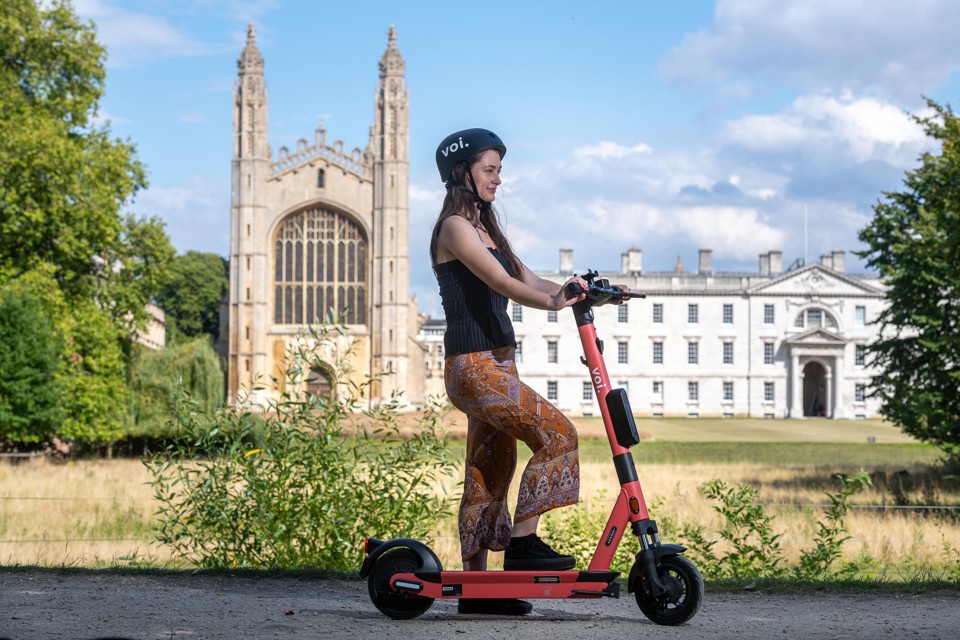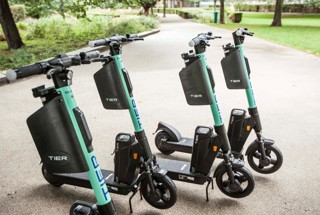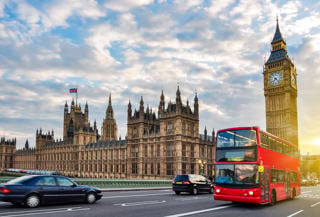MPs on the transport committee are calling for the Government to legalise e-scooters to help reduce congestion.
In a report published today, E-scooters: pavement nuisance or transport innovation, the MPs say that e-scooters have the potential to offer a low cost, accessible and environmentally friendly alternative to the private car.
However, while supporting the introduction and use of e-scooters, the transport committee warns that current rental trials and any plans for legalisation should not be to the detriment of pedestrians, particularly disabled people.
It is calling for robust enforcement measures to eliminate pavement use of e-scooters, which the report says is dangerous and anti-social.
If the Government supports the committee’s recommendation and decides to legalise privately owned e-scooters, the law should clearly prohibit their use on pavements and ensure that such enforcement measures are effective in eliminating this behaviour, it says.
Transport committee chairman, Huw Merriman MP, said: “The UK remains the last major European economy where e-scooters are still banned to use anywhere except on private land and their use on UK roads is currently illegal. That is still a matter of surprise to many, as we see the numbers grow on our streets alongside the Department’s permitted rental trials.
“E-scooters have the potential to become an exciting and ingenious way to navigate our streets and get from place to place.
“If this gets people out of the car, reducing congestion and exercising in the open air, then even better.”
The transport committee further caveats its report by calling for a sensible and proportionate regulatory framework for the legal use of electric scooters, based firmly on evidence gained from current rental trials and from other countries.
The current rental trials should allow important evidence and data to determine the best way to legally incorporate both rental and privately owned e-scooters within the UK’s transport mix, it says.
Merriman said: “We support the Government’s desire to include e-scooters in the UK’s transport mix and the current rental trials will provide a crucial evidence base for future legislation.
“In order to learn how e-scooters impact on safety, the environment and people’s journey choices, the trials need to be accessible to a wide range of people and take place in a variety of different settings.
“We understand why driving licences were required for the trials, but it is a shame that key audiences were excluded at this stage.
“Most importantly, we heard first-hand about the impact of e-scooters on pavements. We need to ensure that their arrival on our streets doesn’t make life more difficult for pedestrians, and especially disabled people.
“Before proceeding with plans to legalise the use of e-scooters, local authorities and Government must use the trials to monitor this closely, put enforcement measures in place and ensure they are effective in eliminating this behaviour.”
To ensure that any regulations governing e-scooters are effective in providing a safe environment for both riders and other road users, the Committee makes the following recommendations to Government:
If the Government legalises e-scooters, users should not be required to have a driving licence for either rental or private use.
- The DfT should monitor the number and types of collisions during the trials to determine future insurance requirements for rental and privately owned e-scooters.
- Local authorities should determine the speed of e-scooters in their areas as a ‘one size fits all’ approach will not work.
- The DfT should use the data from the trials to determine which e-scooter design requirements are appropriate for UK roads.
- Helmet use should be encouraged for rental and privately owned e-scooters.
- The DFT along with local authorities should monitor the trials for problems emerging with abandoned e-scooters leading to ‘street clutter’.
The committee says that there are also valid environmental concerns relating to the lifetime of the scooters and the processes used to recharge their batteries.
DfT should closely monitor the environmental impact of e-scooters and if needed, consider introducing stricter requirements around sustainability, it said.
RAC head of roads policy Nicholas Lyes has warned, however, that the path to introducing te-scooters safely is "fraught with difficulties".
"From ensuring limited road space can be safely shared by drivers, cyclists and now e-scooter riders, right through to how to minimising the chances of them being used on pavements, there is a great deal for national and local government, as well as police forces, to work through," he said.
"There is also a good argument for ensuring there is sufficient segregated cycle/scooter-ways built to reduce the amount of conflict between these new forms of transport and existing road traffic.
“Effective regulation, as well as education of riders, is therefore extremely important to ensure the safety of all road users, especially the vulnerable, isn’t compromised.
“The RAC believes these devices should be restricted to use on roads and cycle lanes, be speed limited, and have both front and rear lights and reflectors as a minimum.
"The Government should also explore whether mandatory insurance and registration plates for e-scooters could also bring enhanced safety benefits and reduce the risk of these being used illegally.
“While there are trials taking place in some parts of the country, it’s worth remembering that these are hire schemes and that private e-scooter use remains illegal.”





















Login to comment
Comments
No comments have been made yet.